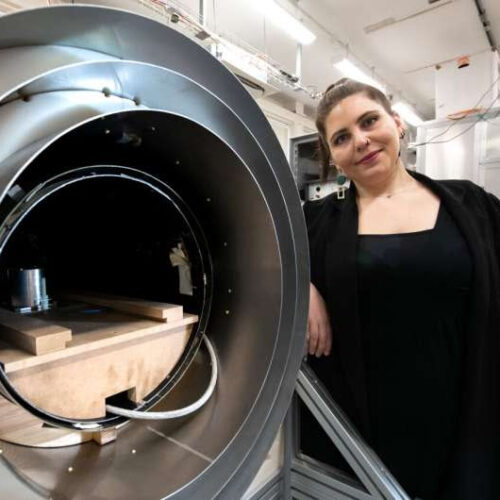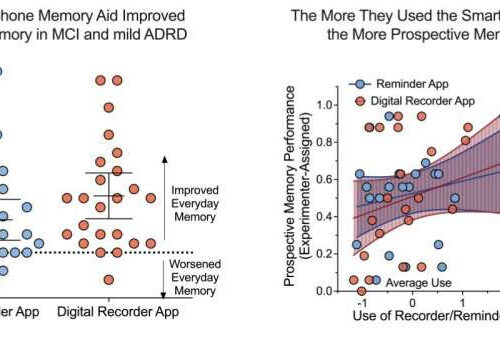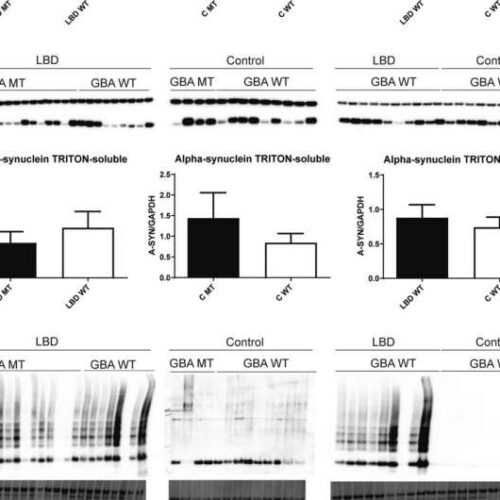UNIVERSITY OF EXETER Artificial intelligence can predict which people who attend memory clinics will develop dementia within two years with 92 percent accuracy, a largescale new study has concluded. Using data from more than 15,300 patients in the US, research from the University of Exeter found that a form of artificial intelligence called machine learning...
Tag: <span>Dementia</span>
Elevated heart rate linked to increased risk of dementia
by Karolinska Institutet Yume Imahori, postdoc researcher at the Department of Neurobiology, Care Sciences, and Society, Karolinska Institutet. Credit: Stefan Zimmerman Having an elevated resting heart rate in old age may be an independent risk factor of dementia, according to a study at Karolinska Institutet in Sweden, published in the journal Alzheimer’s & Dementia: The Journal...
Self-administered cognition test predicts early signs of dementia sooner
by Ohio State University Medical Center Dr. Douglas Scharre reviews the results of a patient’s cognitive test at The Ohio State University Wexner Medical Center. A new study finds the SAGE test he developed accurately identifies early signs of dementia at least six months earlier than standard testing, allowing treatment to start sooner. Credit: The Ohio...
Stroke drug shows promise in treating Alzheimer’s and dementia
by University of Southern California Credit: Pixabay/CC0 Public Domain A human stroke drug, fast-tracked by the Food and Drug Administration and soon entering Phase 3 clinical trials, shows intriguing signs that it might also be a safe and powerful defense against Alzheimer’s and other forms of dementia. A new study published Tuesday in the Journal of Experimental...
Elevated heart rate linked to increased risk of dementia
KAROLINSKA INSTITUTET IMAGE: YUME IMAHORI, POSTDOC RESEARCHER AT THE DEPARTMENT OF NEUROBIOLOGY, CARE SCIENCES AND SOCIETY, KAROLINSKA INSTITUTET. CREDIT: STEFAN ZIMMERMAN Having an elevated resting heart rate in old age may be an independent risk factor of dementia, according to a study at Karolinska Institutet in Sweden published in the journal Alzheimer’s & Dementia: The Journal...
De cluttering may not help people with dementia
by University of East Anglia Credit: CC0 Public Domain A clutter-free environment may not help people with dementia carry out daily tasks—according to a new study from the University of East Anglia. Researchers studied whether people with dementia were better able to carry out tasks, such as making a cup of tea, at home—surrounded by their usual...
Study links amateur boxing to increased risk of brain impairment and early onset of dementia
by Cardiff University Credit: Pixabay/CC0 Public Domain Amateur boxing is associated with an increased risk of cognitive impairment and earlier onset of dementia, according to a study carried out by Cardiff University. The research team found that men who had boxed in their youth were twice as likely to have Alzheimer’s-like impairment as those who had...
Quantum brain sensors could be crucial in spotting dementia after scientists find they can track brain waves
by University of Sussex Aikaterini Gialopsou with magnetic shield where participant brain signal measurements are taken. Credit: University of Sussex New highly sensitive quantum sensors for the brain may in the future be able to identify brain diseases such as dementia, ALS and Parkinson’s, by spotting a slowing in the speed at which signals travel across...
Smartphone technology may help people with dementia remember daily tasks
by Wiley Results from a new study published in the Journal of the American Geriatrics Society show that older adults with mild dementia can learn to use smartphone memory aids to help them remember to complete everyday tasks that are important to their quality of life. Credit: Dr. Scullin Results from a new study published in the Journal of...
Role of fats and proteins in Lewy Body dementia
by Newcastle University Alpha-synuclein solubility in the cingulate cortex from Lewy body disease and controls with and without GBA mutations. Using soluble (cytoplasmic, TEAB), detergent-soluble (membrane bound, Triton X100) and insoluble (aggregates, SDS/Urea) protein fractions from Parkinson’s disease/Dementia with Lewy body cases and controls with and without GBA mutations, we determined alpha-synuclein levels by western blotting....









